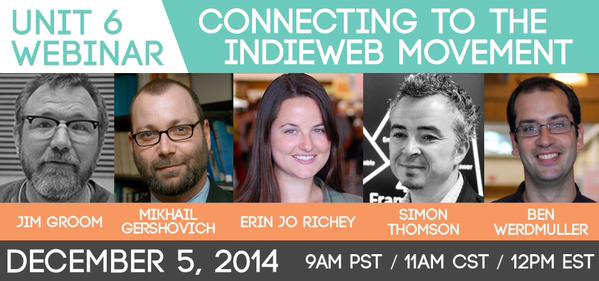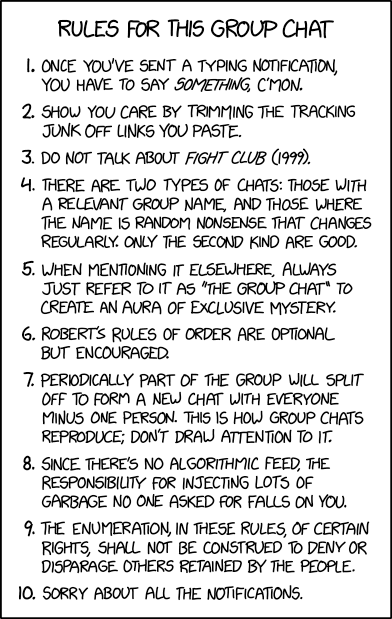Millions tuned into impeachment hearings this week — the first two of five already scheduled. On this week’s show, why shifts in public opinion may not necessarily sway the GOP. Plus, what we can learn from the predatory tactics that enriched Bill Gates.
1. Nicole Hemmer [@pastpunditry], author of Messengers of the Right: Conservative Media and the Transformation of American Politics, on the false premise underlying hope for President Trump's removal. Listen.
2. John Dean [@JohnWDean] former White House counsel, on the lessons he's applying from Watergate to the impeachment hearings for President Trump. Listen.
3. Former Labor Secretary Rob Reich [@RBReich] and Goliath author Matt Stoller [@matthewstoller] on how billionaires like Bill Gates use their power and wealth to force their vision on society. Listen.
Search Results for: indieweb
Tomorrow at 12 PM Eastern/ 9 AM Pacific I’ll be be hosting a Connected Courses discussion that will explore the IndieWeb movement as a people-centered response to the corporate web. How do core IndieWeb principles such as owning your content, remaining better connected, and redefining control online intersect with the values of connected learning? Take a bit of time tomorrow and join myself, Mikhail Gershovich, Ben Werdmuller, Erin Jo Richey, and Simon Thomson to find out more.
Mission
Connected Courses is a collaborative network of faculty in higher education developing online, open courses that embody the principles of connected learning and the values of the open web.
Our goal is to build an inclusive and expansive network of teachers, students, and educational offerings that makes high quality, meaningful, and socially connected learning available to everyone.
Our Course on Connected Courses
For Fall 2014 (from September 2 to December 12, 2014), our major focus is on running a course for developing and teaching connected courses. The course is designed and taught by faculty from diverse institutions, some of whom are the folks behind successful connected courses such as FemTechNet, ds106, phonar, and the National Writing Project CLMOOC. You can find the syllabus here, and the people involved here.
This talk was delivered at OEB 2019 in Berlin. Or part of it was. I only had 20 minutes to speak, and what I wrote here is a bit more than what I could fit in that time-slot.
I've been thinking a lot lately about this storytelling that we speakers do -- it's part of what I call the "ed-tech imaginary." This includes the stories we invent to explain the necessity of technology, the promises of technology; the stories we use to describe how we got here and where we are headed. And despite all the talk about our being "data-driven," about the rigors of "learning sciences" and the like, much of the ed-tech imaginary is quite fanciful. Wizard of Oz pay-no-attention-to-the-man-behind-the-curtain kinds of stuff.
Add Webmentions to your Eleventy static site with this step-by-step tutorial.
Attributing your source of discovery should never obscure attributing the creator or originator of the content. For instance, if you repost a compelling poster you found on your favorite design blog, first credit the person who designed the poster, and then attribute discovery to the design blog that brought it to your attention.
USE THE UNICODES–OR DON’T
We’ve proposed two unicode characters for attributing. They’re clean and short, and they help spread the message of The Curator’s Code itself, but they are not the only way to attribute. You can always use words like “via,” or simply hyperlink to your source — the link is the important part.
ᔥ VS. ↬
Part of what The Curator’s Code aspires to do is evolve our thinking about the levels of attribution. “Via” ᔥ tends to denote a direct repost — something you found elsewhere and shared with your audience with little modification or elaboration. “HT” ↬ tends to stand for indirect discovery — something for which you got the idea at your source, but modified or elaborated on significantly when sharing with your audience.


